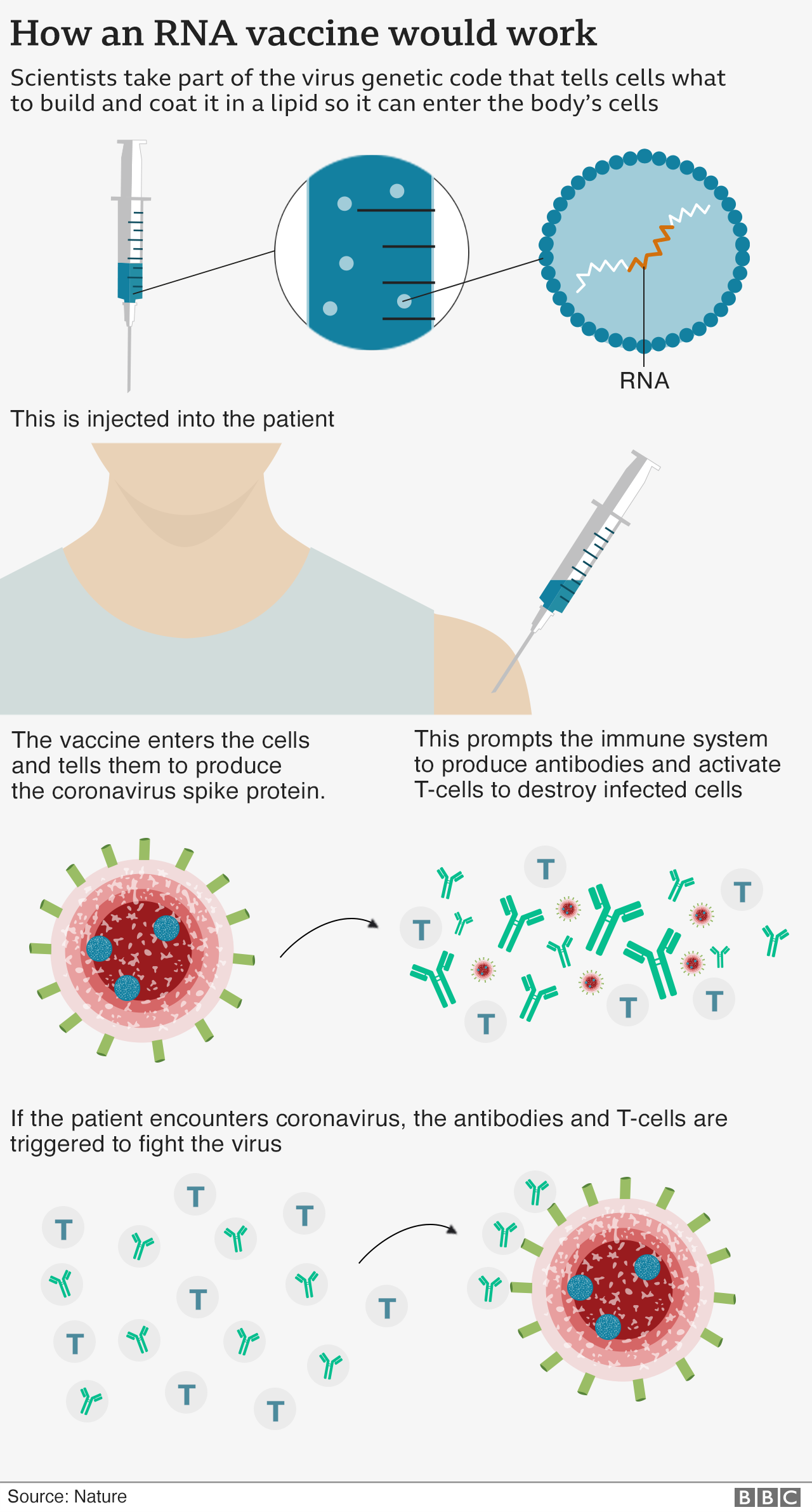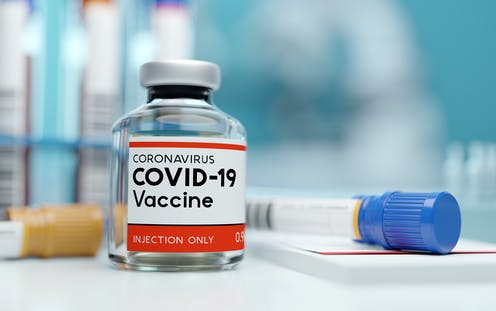he first effective coronavirus vaccine can prevent more than 90% of people from getting Covid-19, a preliminary analysis shows.
The developers – Pfizer and BioNTech – described it as a “great day for science and humanity”.
Their vaccine has been tested on 43,500 people in six countries and no safety concerns have been raised.
The companies plan to apply for emergency approval to use the vaccine by the end of the month.
A vaccine – alongside better treatments – is seen as the best way of getting out of the restrictions that have been imposed on all our lives.
There are around a dozen in the final stages of testing – known as a phase 3 trial – but this is the first to show any results.
It uses a completely experimental approach – that involves injecting part of the virus’s genetic code – in order to train the immune system.

When will the pandemic end?
It has been an astounding feat to get this far so soon.
No vaccine has gone from the drawing board to being proven highly effective in such a short period of time.
And this vaccine seems to be even more effective than people were hoping.
There are still questions – how long does immunity last, does the vaccine work as well in high-risk elderly people, does it stop you spreading the virus or just from developing symptoms?
And the journey ahead is long and complicated.
Manufacturing enough doses and then actually immunising hundreds of millions of people around the world is a monumental challenge.
Hospital and care home staff will be prioritised along with those at highest risk from Covid-19.
So face masks and social distancing are likely to feature of our lives for some time to come.
But at last, the gloom of Covid is starting to give way to the hope that it might one day be over.

Dr Albert Bourla, the chairman of Pfizer, said: “We are a significant step closer to providing people around the world with a much-needed breakthrough to help bring an end to this global health crisis.”
Prof Ugur Sahin, one of the founders of BioNTech, described the results as a “milestone”.
The data presented is not the final analysis. It is based on the first 94 volunteers to develop Covid – the precise effectiveness of the vaccine may change when the full results are analysed.
Pfizer and BioNTech say they will have enough safety data by the third week of November to take their vaccine to regulators. Until then it is not possible for countries to begin their vaccination campaigns.
But the companies’ announcement was welcomed as a significant development.
“This news made me smile from ear to ear,” Prof Peter Horby, from the University of Oxford.
“It is a relief… there is a long long way to go before vaccines will start to make a real difference, but this feels to me like a watershed moment.”
The UK Prime Minister’s official spokesman said the results were “promising” and that “the NHS stands ready to begin a vaccination programme for those most at risk once a Covid-19 vaccine is available”.
source BBC
